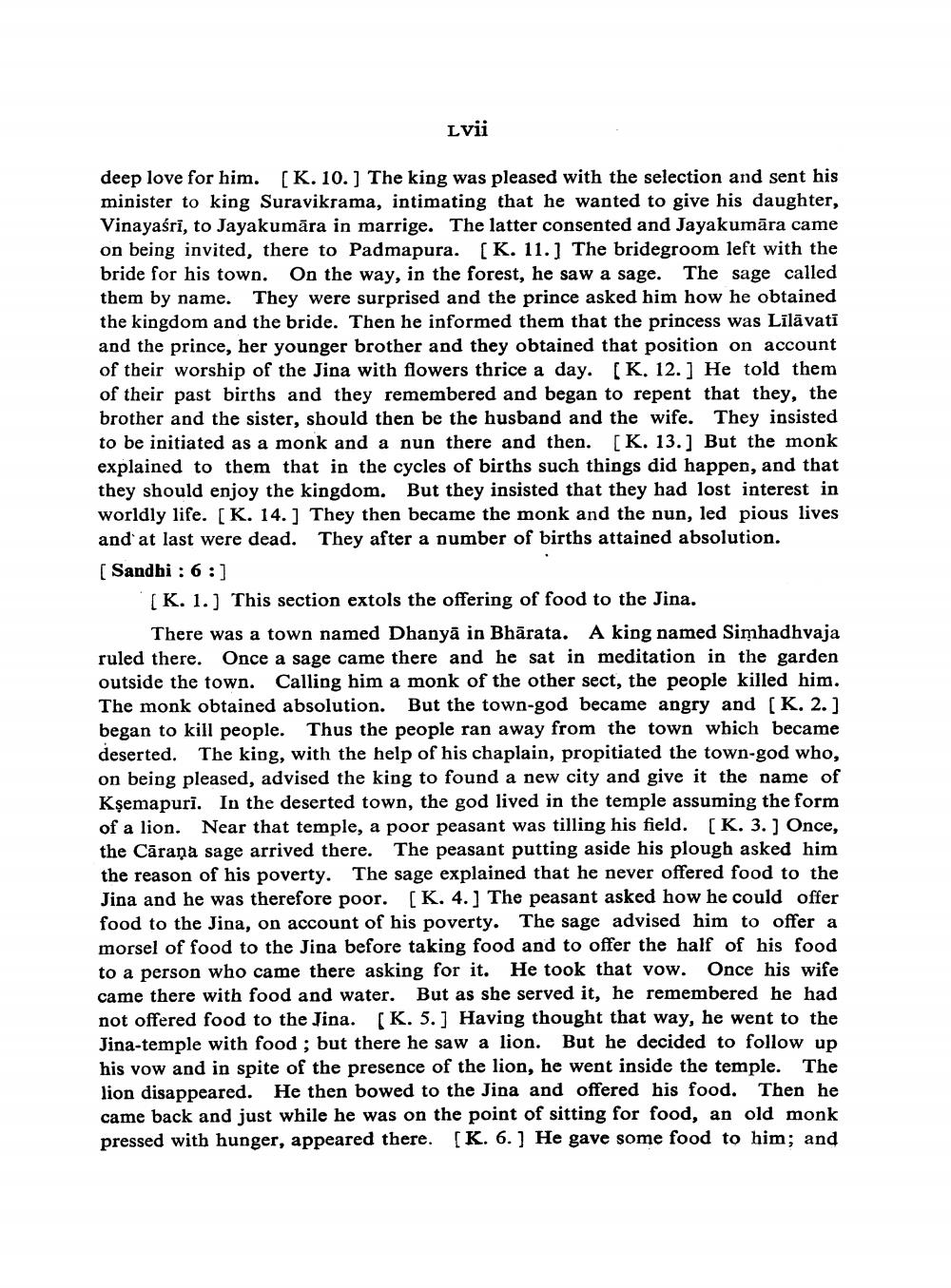________________
Lvii
deep love for him. [K. 10. ] The king was pleased with the selection and sent his minister to king Suravikrama, intimating that he wanted to give his daughter, Vinayaśrī, to Jayakumāra in marrige. The latter consented and Jayakumāra came on being invited, there to Padmapura. (K. 11.] The bridegroom left with the bride for his town. On the way, in the forest, he saw a sage. The sage called them by name. They were surprised and the prince asked him how he obtained the kingdom and the bride. Then he informed them that the princess was Līlāvati and the prince, her younger brother and they obtained that position on account of their worship of the Jina with flowers thrice a day. (K. 12.] He told them of their past births and they remembered and began to repent that they, the brother and the sister, should then be the husband and the wife. They insisted to be initiated as a monk and a nun there and then. [K. 13.) But the monk explained to them that in the cycles of births such things did happen, and that they should enjoy the kingdom. But they insisted that they had lost interest in worldly life. [K. 14.] They then became the monk and the nun, led pious lives and at last were dead. They after a number of births attained absolution. (Sandhi : 6:]
[K. 1. ) This section extols the offering of food to the Jina.
There was a town named Dhanyā in Bhārata. A king named Simhadhvaja ruled there. Once a sage came there and he sat in meditation in the garden outside the town. Calling him a monk of the other sect, the people killed him. The monk obtained absolution. But the town-god became angry and (K. 2. ] began to kill people. Thus the people ran away from the town which became deserted. The king, with the help of his chaplain, propitiated the town-god who, on being pleased, advised the king to found a new city and give it the name of Ksemapuri. In the deserted town, the god lived in the temple assuming the form of a lion. Near that temple, a poor peasant was tilling his field. (K. 3.) Once, the Cāraņa sage arrived there. The peasant putting aside his plough asked him the reason of his poverty. The sage explained that he never offered food to the Jina and he was therefore poor. [K. 4.] The peasant asked how he could offer food to the Jina, on account of his poverty. The sage advised him to offer a morsel of food to the Jina before taking food and to offer the half of his food to a person who came there asking for it. He took that vow. Once his wife came there with food and water. But as she served it, he remembered he had not offered food to the Jina. (K. 5.] Having thought that way, he went to the Jina-temple with food; but there he saw a lion. But he decided to follow up his vow and in spite of the presence of the lion, he went inside the temple. The lion disappeared. He then bowed to the Jina and offered his food. Then he came back and just while he was on the point of sitting for food, an old monk pressed with hunger, appeared there. (K. 6. ] He gave some food to him; and




